Since we left Lake Malawi we have visited Liwonde and Majete National Parks , spending three nights at each. The National Parks in Malawi are small in comparison to others in Africa until recently have been allowed to become very run down and depleted by the activities of poachers. In 2015 the management of the parks was privatised and extensive re-stocking has been undertaken. Anti-poaching patrols have been set up, and in the case of Liwonde training has been provided by personnel from the British Army. In both parks Rhino have been re-introduced mainly with animals from more vulnerable parks in South Africa, all in an effort to conserve the species. Needless to say we didn’t see any Rhino in either park. The parks may lack in the number and diversity of animals but make up for it with the varied scenery and quietness. This morning we went on a four hour game drive and didn’t see another vehicle.
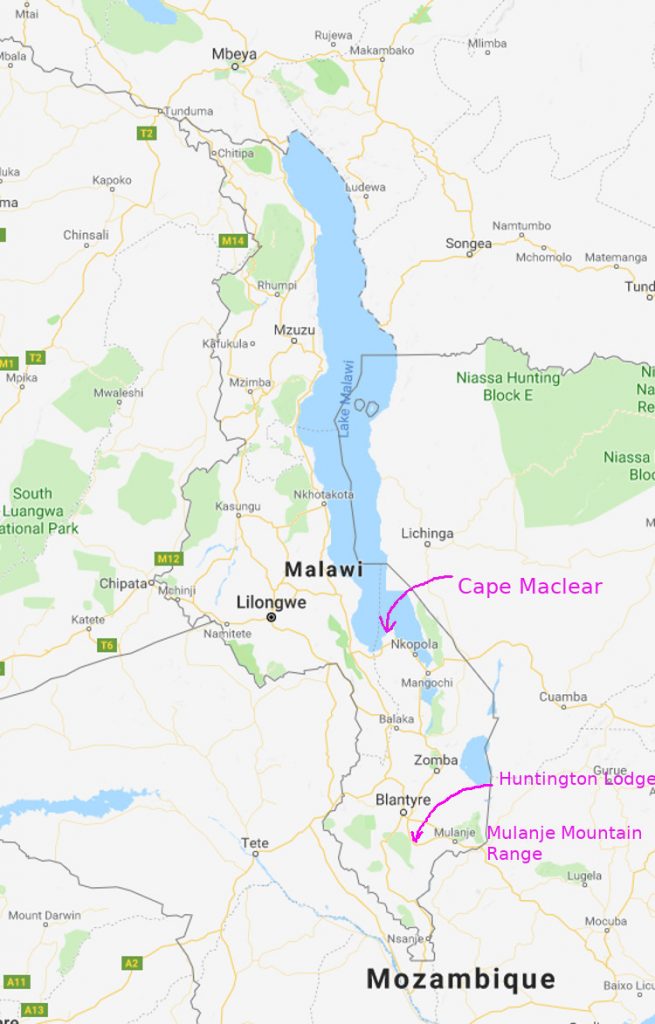
We also visited the tea growing area of Malawi near the Mulanje mountain range. The weather was much cooler and the scenery much greener. We camped in an “Eco-Lodge” run by an Italian couple who also sponsored and managed a local primary school funded by donors in Italy.
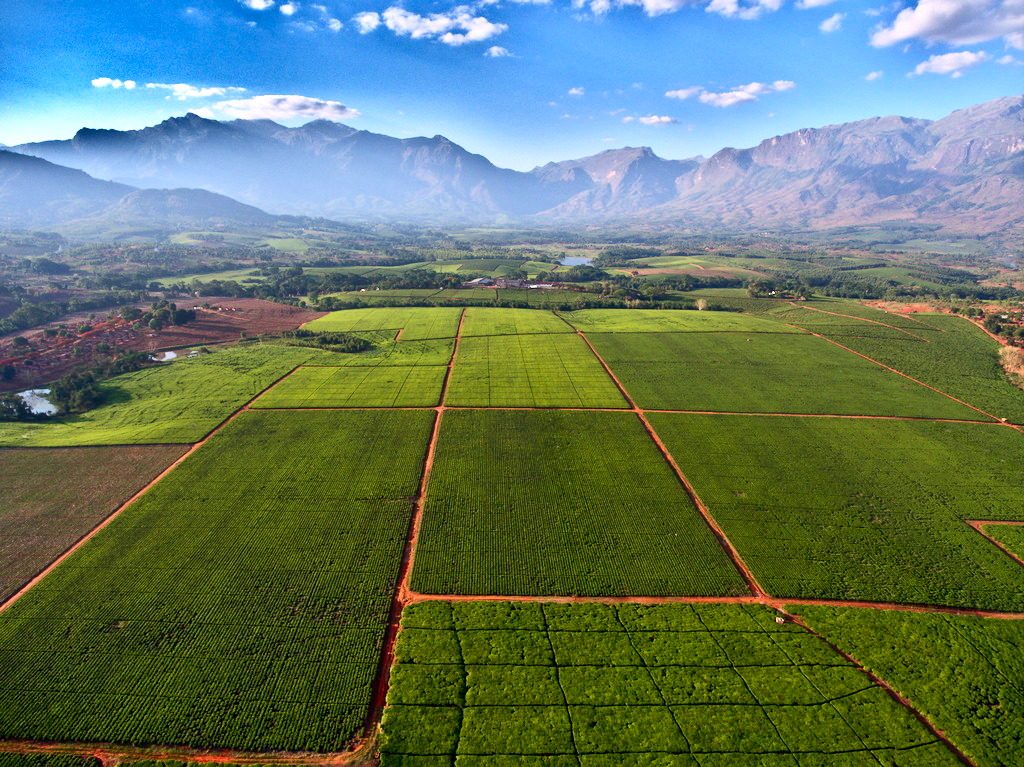
Tea Plantation – Mulange mountain range in background.
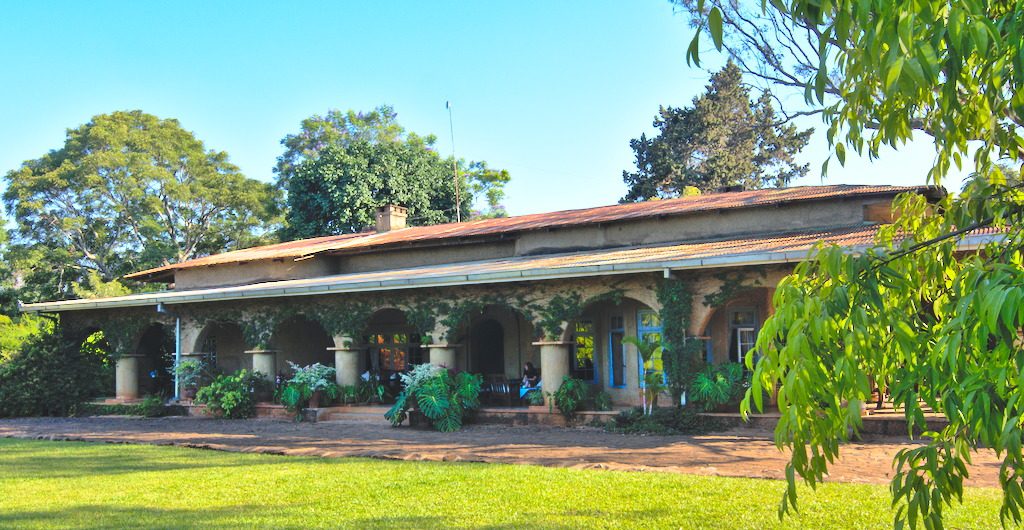
Huntington Lodge on a tea plantation has been in the same family since 1923
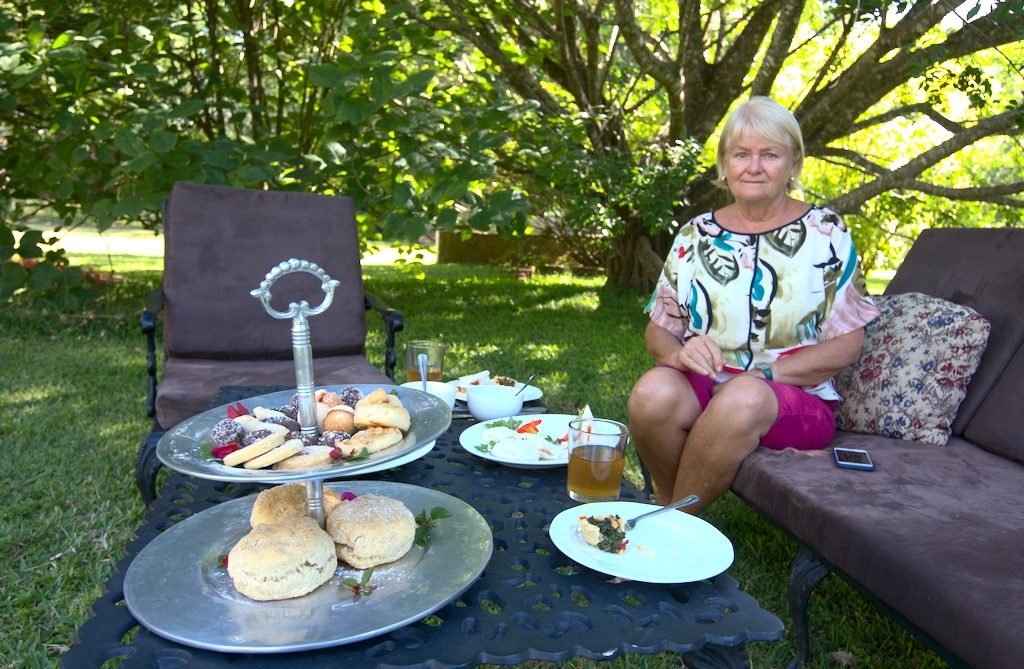
Afternoon tea at Huntington Lodge. Doesn’t reach South African standard and anyway no bubbly.
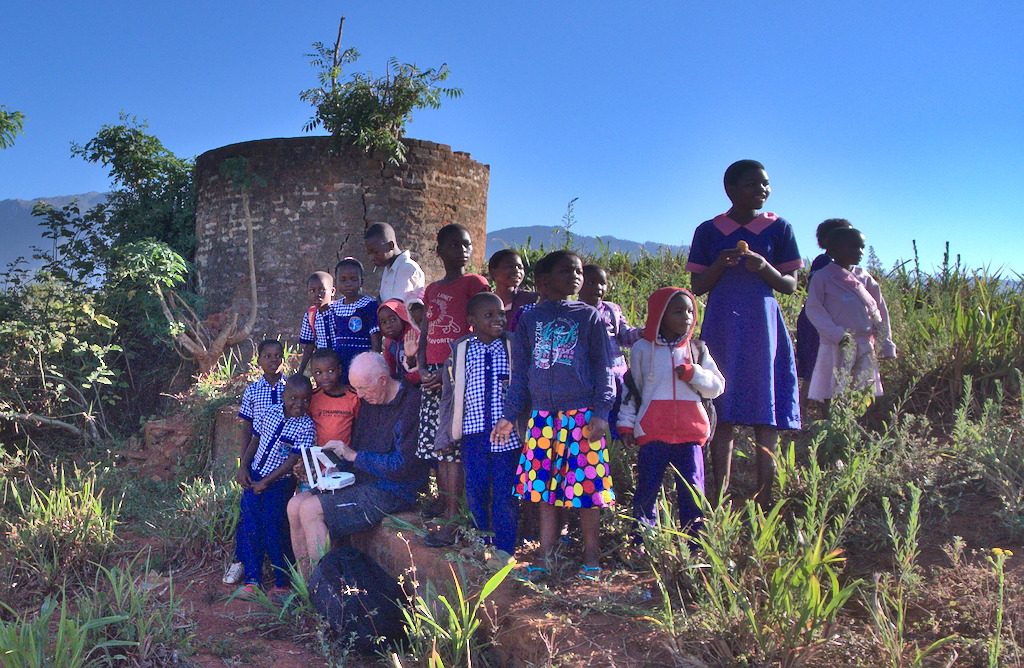
Flying a drone at 6:30 in the morning still attracts attention.
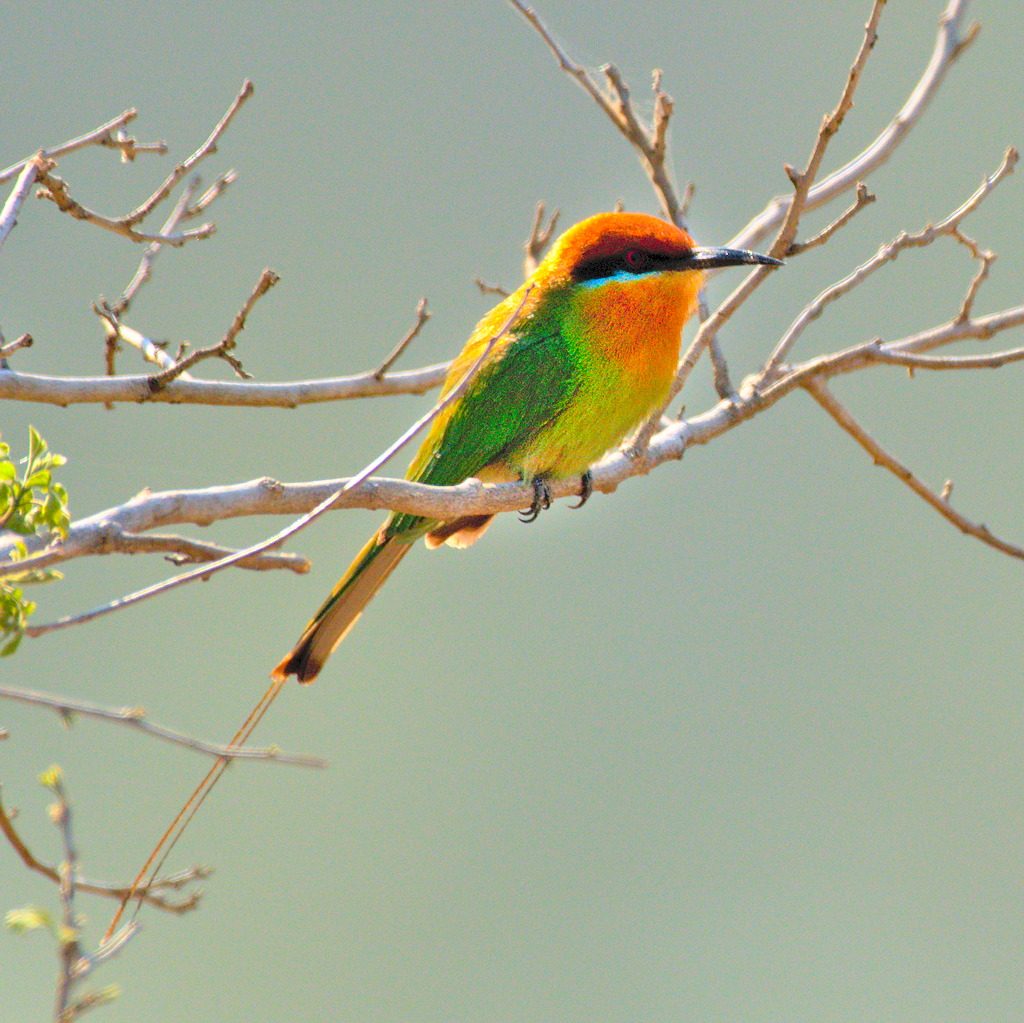
Bohm’s Bee-Eater
We have had to revise our plans slightly because Zimbabwe is going through another minor economic crisis. There is a fuel shortage, or rather the Government doesn’t have any foreign exchange with which to buy fuel. As a result there are long queues at the garages with speculators buying fuel to sell on the black market. We have bought some fuel cans and hope to carry enough fuel to get us through Zimbabwe without having to buy any. Also because there is a shortage of any sort of cash the economy has gone cashless using so called electronic “Zim Dollars”. The procedure for exchanging hard currency into electronic currency spendable by mobile phone is complex and carries a financial risk. So we shall be carrying all the food we need with the idea of not spending any money at all. And to top it all the Government decreed that the Zim Dollar is equal to a US$ and that all shops must treat it as such. Of course no one believes this and the shopkeepers responded by doubling their prices to compensate. So if you do pay in hard currency you are paying twice as much as you should. As a consequence we have spent more time in Malawi than we originally planned and will pass through Zimbabwe relatively quickly. We leave Malawi on Friday crossing into Mozambique, spend one night in Tete and then into Zimbabwe for two or three nights.